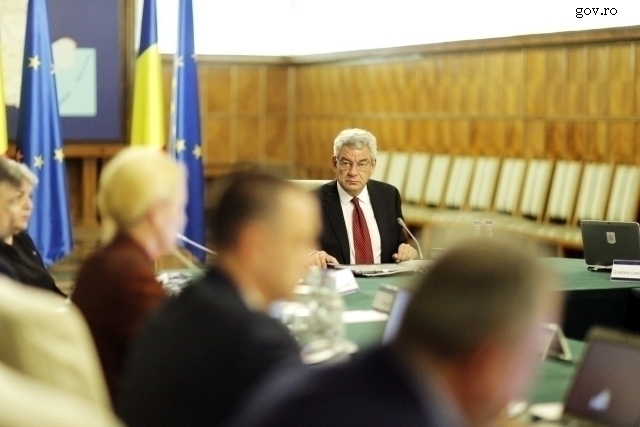Disputes in the Romanian Government
The Romanian Government might be restructured depending on the final decision of the sides involved

Corina Cristea, 12.01.2018, 12:41
The idea of restructuring the government, intensely discussed at the end of 2017, continues to trouble the Social Democrats. Prime Minister Mihai Tudose is pleading for a smaller government, which should be closer to citizens. According to him, the current form of the government, which includes 28 ministries, is too dense, not to mention the costs. Prime Minister Tudose also claims that too many territorial structures that actually belong to the same ministry have been set up, and their number should be reduced, which will consequently cut down on red tape.
The Prime Minister also expressed discontent with the situation at the Interior Ministry, and asked for the resignation of the interior minister Carmen Dan, whom he accuses of lying. The interior minister denied the accusations and pointed out that the government is a political structure, with the ministers being nominated and validated in the coalition parties statutory bodies, which also approve their withdrawal from the government. The differences between the prime minister and the interior minister, with the latter being backed by the Social Democrat leader Liviu Dragnea, further fuels the idea of tensions at the top level of the Social Democratic Party.
Denied by the people involved, the tensions can actually be detected in the attitude of Liviu Dragnea, who does not support the idea of government restructuring. Recently, at the end of the meeting of the Executive Committee of the Social Democratic Party, when asked about restructuring, Dragnea replied, quote: “I agree with what I have said. I said several months ago that in January we would be making an analysis of how the decision flow is working within ministries and we would try to make governance better than in 2017. Both restructuring and reshuffling are valid options, or neither of them, or we can simply improve the decision flow in ministries.
Restructuring was approached during the aforementioned meeting of the Social Democratic Partys Executive Committee, but a final decision is to be made at the next meeting to be held later this month. Analyzing the declarations of the Social Democrats, we could conclude that there are two opinion trends related to the Tudose government restructuring: one promoting restructuring as an absolute must, the other supporting the current government form which is functioning very well and should not be modified, because the government needs continuity. (Translated by L. Simion)






























